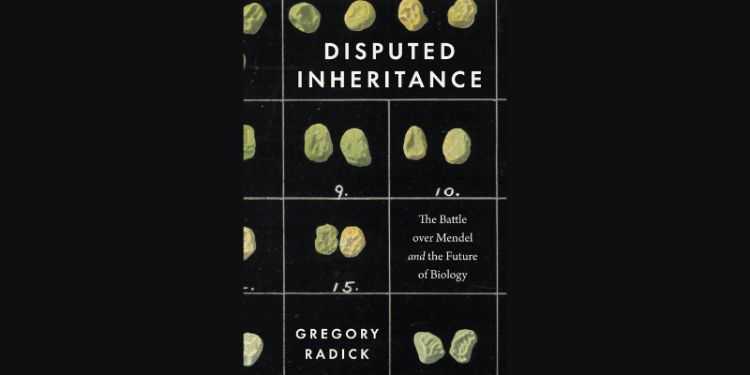Professor Gregory Radick explores the complexity of genetics through its history

A foundational debate turning out differently could have changed science and society. Read Professor Radick’s interview about his research into the history of genetics.
The journal ‘Trends in Genetics’ has published a question-and-answer (Q&A) article with Professor Gregory Radick, which covers his new book 'Disputed Inheritance: The Battle over Mendel and the Future of Biology’.
The book, published by The University of Chicago Press, brings fresh insights into the history of genetics.
It shows that patterns and concepts derived from Gregor Mendel’s pea experiments, which became central to the science of inheritance after 1900, have limitations highlighted at the time by Walter Frank Raphael Weldon.
However, Weldon’s perspective, which emphasized the role of internal and external contexts in modifying inherited characters, was not circulated widely. He passed away in 1906 before he could publish a book on his research.
The potential of alternative perspectives
In the Q&A, Professor Radick talks about how he conducted his wide-ranging historical research into the history of genetics and how this book brings together facets of his previous work.
The pursuit of a 'what if', or 'counterfactual', question – what if Weldon had lived long enough to publish his book? – led to a classroom experiment assessing how a re-organization of the genetics curriculum along Weldonian lines affects student learning.
Conducted at Leeds in 2013, that experiment started what is now a flourishing worldwide research programme to help students better grasp the complexity of genetics.
With ‘Disputed Inheritance’, Professor Radick hopes to contribute to a shift towards engaging with the scientific past in more creative and critical ways.
He wants to provide a “much richer sense of what was up in biology circa 1900” and in doing so, expand the options for biology in our day.
Read the Q&A with Professor Gregory Radick at Trends in Genetics.




